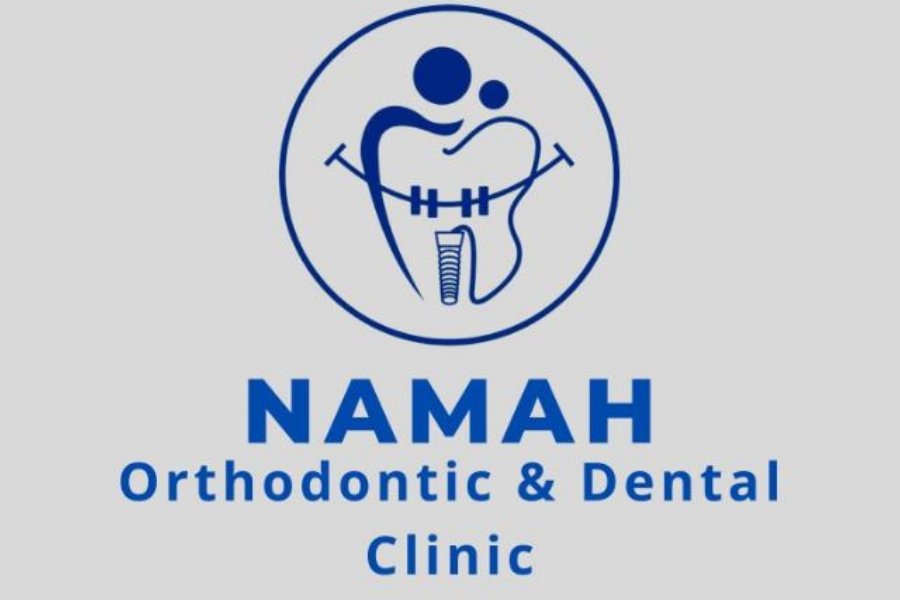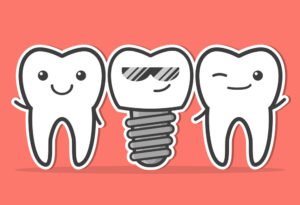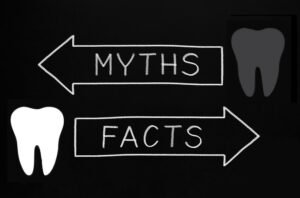Monday to Saturday - 10:00 -8:00
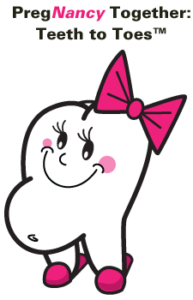
(Image source: http://www.mycohi.org/pregnancy-together.html)
Pregnancy is a crucial time for women, and it is essential to take care of their health. Dental care is one of the most overlooked aspects of pregnancy. Many women do not realize that their oral health can impact their pregnancy. Poor oral health can lead to complications such as premature birth, low birth weight, and preeclampsia (high BP during pregnancy).
Pregnant women need to maintain good oral hygiene and visit their dentist regularly. Hormonal changes during pregnancy can lead to an increased risk of gum diseases, which can cause inflammation and bleeding. Regular dental checkups can help detect and treat any dental problems before they become severe. Dental procedures such as fillings and sometimes even root canals can be safely performed during pregnancy with proper precautions.
This article will discuss the importance of dental care during pregnancy and how to maintain good oral hygiene. We will also address common dental issues that may arise during pregnancy and how to manage them. By the end of this article, readers will have a better understanding of the importance of dental care during pregnancy and how to take care of their oral health.
Importance of Dental Care During Pregnancy
Role of Oral Health in Pregnancy
Maintaining good oral health during pregnancy is crucial for both the mother and the foetus. Neglected oral health can lead to various complications, including premature birth, low birth weight, and preeclampsia. According to the American Dental Association, pregnant women should receive routine dental care, including cleanings and examinations.
During pregnancy, hormonal changes can increase the risk of gum disease and tooth decay. Also, a previously decayed tooth which wasn’t painful back then, can be a cause of severe pain during pregnancy. Pregnant women may also experience pregnancy gingivitis, which causes red, swollen, and bleeding gums. These issues can be prevented or managed with proper dental care.
Common Dental Problems in Pregnancy
Pregnant women may experience a range of dental problems, including:
- Tooth decay: Pregnancy-related nausea and vomiting can increase the risk of tooth decay.
- Gum disease: Hormonal changes can cause pregnancy gingivitis, which can lead to gum disease if left untreated.
- Enamel erosion: Frequent vomiting can cause enamel erosion and increase the risk of tooth decay and sensitivity.
- Loose teeth: Hormonal changes can increase the severity of gum disease and can cause teeth to become loose.
- Dry mouth: Some pregnant women may experience dry mouth, which is one of the major risk factors of tooth decay.
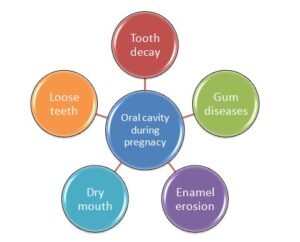
(Image created by Dr. Harshit & Dr. Mishita)
To prevent these issues, pregnant women should maintain good oral hygiene habits, such as brushing twice a day, flossing daily, and using mouthwash intermittently as directed by the doctor. They should also eat a healthy diet and avoid sugary or acidic foods and drinks. Alcoholic drinks should not be consumed.
Planning a dental checkup and getting all the issues resolved is a wise man<s choice whenever one plans to conceive.
Conclusively, dental care is an essential part of overall health during pregnancy to ensure good oral and general health for both the mother and the baby. Pregnant women should receive routine dental care and practice good oral hygiene habits to prevent common dental problems.
Dental Check-Ups and Procedures
Routine Dental Check-Ups
Regular dental check-ups can be performed during pregnancy. Pregnant women should visit their dentist for a routine check-up at least once during their pregnancy. Dental cleanings and other routine procedures can be safely performed during pregnancy.
A pregnant female should not be exposed to X-rays as it can have ill effects on foetus. Also, the chair position has to be taken care of if the patient is in the second or third trimester of pregnancy. Any medical condition such as hepatitis, should be informed to the doctor beforehand to give special care and precautions during treatment or even during routine check-ups.
During the check-up, the dentist examines the teeth and gums for any signs of decay, gum disease, or other problems. The dentist will also have a keen eye on observing any changes in the mouth that may be related to pregnancy, such as pregnancy gingivitis or pregnancy tumor. If any issues are found, the dentist will discuss treatment options with the patient as well as the concerned gynecologist.
Emergency Dental Procedures
In the event of a dental emergency during pregnancy, such as a toothache or broken tooth, it is important to seek treatment as soon as possible. Delaying treatment can lead to further complications and potentially harm the developing fetus.
Emergency dental procedures, such as root canals or extractions, can be safely performed during pregnancy with proper precautions. Local anesthesia can be used to numb the area being treated, and dental X-rays can be taken using suitable protective wear like a lead apron and thyroid collar.
It is important to inform the dentist that you are pregnant and provide information about any medications or supplements you are taking. The dentist may consult with the patient’s obstetrician to ensure the safety of any dental procedures.
Overall, maintaining good oral health during pregnancy is important for both the mother and the developing fetus. Regular dental check-ups and prompt treatment of any dental issues can help prevent complications and ensure a healthy pregnancy.
Oral Hygiene Practices
Daily Oral Care

(Image source: https://www.vectorstock.com)
Maintaining good oral hygiene practices is crucial during pregnancy. Pregnant women are at a higher risk of developing gum disease due to hormonal changes, which can lead to premature birth and low birth weight. Therefore, it is recommended to brush your teeth twice a day with fluoride toothpaste and floss once a day (PS: the permissible fluoride content in the toothpaste should be decided by the doctor, taking care of various geographical factors around).
Pregnant women should also use an antiseptic mouthwash to reduce the risk of gum disease. However, they should avoid mouthwashes containing alcohol as it can be harmful to the baby. Instead, they can opt for mouthwashes with natural ingredients like tea tree oil or aloe vera.
Nutrition for Oral Health
Proper nutrition is also essential for maintaining good oral health during pregnancy. Pregnant women should consume a balanced diet that includes fruits, vegetables, whole grains, and lean proteins. They should avoid sugary and acidic foods and beverages that can lead to tooth decay.

(Image source: https://media.tenor.com)
Calcium and vitamin D are crucial for healthy teeth and bones. Therefore, pregnant women should consume foods rich in these nutrients like milk, cheese, and yogurt. They can also take supplements after consulting with their healthcare provider.
In conclusion, maintaining good oral hygiene practices and proper nutrition is crucial during pregnancy to prevent gum disease and tooth decay. Pregnant women should consult with their healthcare provider regarding any concerns or questions about their oral health.
Potential Risks and Complications
Risks of Neglecting Dental Care
Pregnancy can make a woman more susceptible to dental problems, such as gum disease and tooth decay. If left untreated, these issues can lead to more serious complications. Neglecting dental care during pregnancy can also increase the risk of premature birth, low birth weight, and preeclampsia.
Complications from Dental Procedures
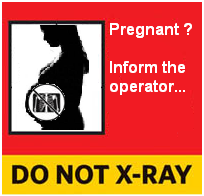
(Image source: https://www.aerb.gov.in)
Certain dental procedures, such as X-rays and teeth whitening, should be avoided during pregnancy. However, some procedures may be necessary for the health of the mother and baby.
Local anesthesia and dental fillings are generally considered safe during pregnancy. However, some studies suggest that dental procedures performed during the first trimester may increase the risk of miscarriage. Pregnant women need to discuss any necessary dental procedures with their healthcare provider and dentist.
In rare cases, dental procedures can lead to infection or bleeding. Women who experience severe pain, swelling, or bleeding after a dental procedure should contact their dentist immediately.
Pregnant women should prioritize their dental health to prevent potential risks and complications. Regular dental check-ups and good oral hygiene can help ensure a healthy pregnancy and delivery.
Conclusion
Proper dental care during pregnancy is of utmost importance for both the mother and the baby. Pregnant women should continue to maintain their regular dental visits and follow good oral hygiene practices.
Pregnant women must inform their dentist of their pregnancy and any medications they are taking. X-rays should be avoided during pregnancy unless it is absolutely necessary. If a dental emergency arises, treatment can be performed safely during pregnancy with the proper precautions.
Pregnancy can lead to changes in oral health, such as pregnancy gingivitis, which can be managed with proper dental care. Women who experience vomiting during pregnancy should rinse their mouths with water or mouthwash to help prevent damage to their teeth.
Pregnant women should pay attention to their oral health and general health equally and work closely with their dentist to ensure a healthy pregnancy and baby.
If you have any questions, suggestions or compliments you can give your valuable comments below or you may reach out to us at following :
